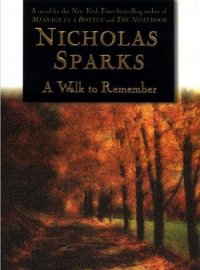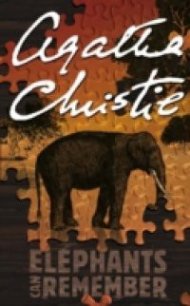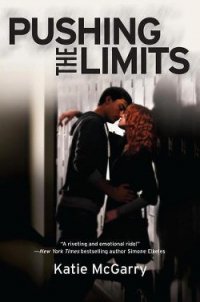Winter Fire - Landis Geoffrey Alan (читать книги полные .txt) 📗
In November, the zoo’s last stubborn elephant died. The predators, the lions, the tigers, even the wolves, were already gone, felled by simple lack of meat. The zebras and antelopes had gone quickly, some from starvation-induced illness, some killed and butchered by poachers. The elephant, surprisingly, had been the last to go, a skeletal apparition stubbornly surviving on scraps of grass and bits of trash, protected against ravenous poachers by a continuous guard of armed watchmen. The watchmen proved unable, however, to guard against starvation. Some people claim that kangaroos and emus still survived, freed from their hutches by the shelling, and could be seen wandering free in the city late at night. Sometimes I wonder if they survive still, awkward birds and bounding marsupials, hiding in the foothills of the Austrian Alps, the last survivors of the siege of Salzburg.
It was a hard winter. We learned to conserve the slightest bit of heat, so as to stretch a few sticks of firewood out over a whole night. Typhus, dysentery, and pneumonia killed more than the shelling, which had resumed in force with the onset of winter. Just after New Year, a fever attacked me, and there was no medicine to be had at any price. Johann wrapped me in blankets and fed me hot water mixed with salt and a pinch of precious sugar. I shivered and burned, hallucinating strange things, now seeing kangaroos and emus outside my little room, now imagining myself on the surface of Mars, strangling in the thin air, and then instantly on Venus, choking in heat and darkness, and then floating in interstellar space, my body growing alternately larger than galaxies, then smaller than atoms, floating so far away from anything else that it would take eons for any signal from me to ever reach the world where I had been born.
Eventually the fever broke, and I was merely back in my room, shivering with cold, wrapped in sheets that were stinking with sweat, in a city slowly being pounded into rubble by distant soldiers whose faces I had never seen, fighting for an ideology that I could never understand.
It was after this, at my constant pleading, that Johann finally took me to see his molecular still. It was a dangerous walk across the city, illuminated by the glow of the Marionette Theater, set afire by incendiary bombs two days before. The still was hidden below the city, farther down even than the bomb shelters, in catacombs that had been carved out of rock over two thousand years ago. There were two men there, a man my foster father’s age with a white moustache, and an even older Vietnamese-German man with one leg, who said nothing the whole time.
The older man looked at me and said in French, which perhaps he thought I wouldn’t understand, "This is no place to bring a little one."
Johann replied in German. "She asks many questions." He shrugged, and said, "I wanted to show her."
The other said, still in French, "She couldn’t understand." Right then I resolved that I would make myself understand, whatever it was that they thought I could not. The man looked at me critically, taking in, no doubt, my straight black hair and almond eyes. "She’s not yours, anyway. What is she to you?"
"She is my daughter," Johann said.
The molecular still was nothing to look at. It was a room filled with curtains of black velvet, doubled back and forth, thousands and thousands of meters of blackness. "Here it is," Johann said. "Look well, little Leah, for in all the world, you will never see such another."
Somewhere there was a fan that pushed air past the curtains; I could feel it on my face, cool, damp air moving sluggishly past. The floor of the room was covered with white dust, glistening in the darkness. I reached down to touch it, and Johann reached out to still my hand. "Not to touch," he said.
"What is it?" I asked in wonder.
"Can’t you smell it?"
And I could smell it, in fact, I had been nearly holding my breath to avoid smelling it. The smell was thick, pungent, almost choking. It made my eyes water. "Ammonia," I said.
Johann nodded, smiling. His eyes were bright. "Ammonium nitrate," he said.
I was silent most of the way back to the fortified basement we shared with two other families. There must have been bombs, for there were always the birds, but I do not recall them. At last, just before we came to the river, I asked, "Why?"
"Oh, my little Leah, think. We are cut off here. Do we have electrical generators to run coilguns like the barbarians that surround us? We do not. What can we do, how can we defend ourselves? The molecular still sorts molecules out of the air. Nitrogen, oxygen, water; this is all that is needed to make explosives, if only we can combine them correctly. My molecular still takes the nitrogen out of the air, makes out of it ammonium nitrate, which we use to fire our cannons, to hold the barbarians away from our city."
I thought about this. I knew about molecules by then, knew about nitrogen and oxygen, although not about explosives. Finally something occurred to me, and I asked, "But what about the energy? Where does the energy come from?"
Johann smiled, his face almost glowing with delight. "Ah, my little Leah, you know the right questions already. Yes, the energy. We have designed our still to work by using a series of reactions, each one using no more than a gnat’s whisker of energy. Nevertheless, you are right, we must needs steal energy from somewhere. We draw the thermal energy of the air. But old man entropy, he cannot be cheated so easily. To do this we need a heat sink."
I didn’t know then enough to follow his words, so I merely repeated his words dumbly: "A heat sink?"
He waved his arm, encompassing the river, flowing dark beneath a thin sheet of ice. "And what a heat sink! The barbarians know we are manufacturing arms; we fire the proof of that back at them every day, but they do not know where! And here it is, right before them, the motive power for the greatest arms factory of all of Austria, and they cannot see it."
Molecular still or not, the siege went on. The Pan-Slavics drove back the Tenth Crusade, and resumed their attack on the city. In February the armies entered the city twice, and twice the ragged defenders drove them back. In April, once more, the flowers bloomed, and once more, we had survived another winter.
It had been months since I had had a bath; there was no heat to waste on mere water, and in any case, there was no soap. Now, at last, we could wash, in water drawn directly from the Salzach, scrubbing and digging to get rid of the lice of winter.
We stood in line for hours waiting for a day’s ration of macaroni, the humanitarian aid that had been air-dropped into the city, and hauled enormous drums across the city to replenish our stockpile of drinking water.
Summer rain fell, and we hoarded the water from rain gutters for later use. All that summer the smell of charred stone hung in the air. Bullet-riddled cars, glittering shards of glass, and fragments of concrete and cobblestone covered the streets. Stone heads and gargoyles from blasted buildings would look up at you from odd corners of the city.
Basements and tunnels under the city were filled out with mattresses and camp beds as makeshift living quarters for refugees, which became sweaty and smelly during summer, for all that they had been icy cold in winter. Above us, the ground would shake as the birds flew in, and plaster dust fell from the ceiling.
I was growing up. I had read about sex, and knew it was a natural part of the pattern of life, the urging of chromosomes to divide and conquer the world. I tried to imagine it with everybody I saw, from Johann to passing soldiers, but couldn’t ever make my imagination actually believe in it. There was enough sex going on around me-we were packed together tightly, and humans under stress copulate out of desperation, out of boredom, and out of pure instinct to survive. There was enough to see, but I couldn’t apply anything of what I saw to myself.




